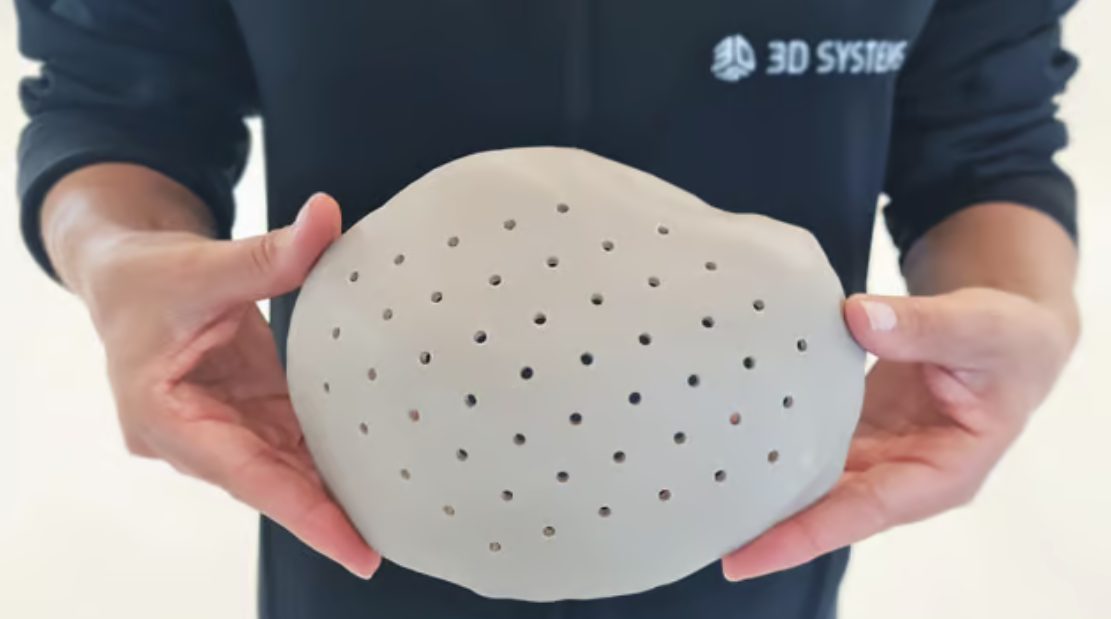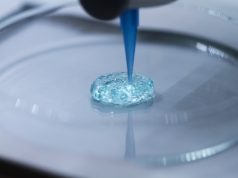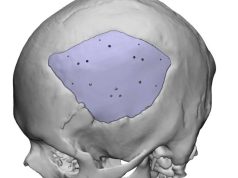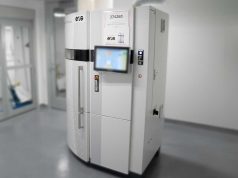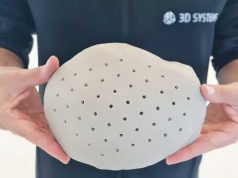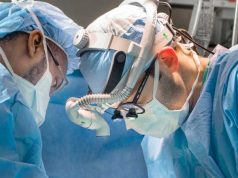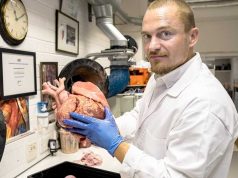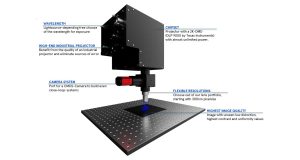3D Systems announced that a patient-specific 3D-printed cranial implant, manufactured using its point-of-care technologies, was successfully used in a cranioplasty at the University Hospital of Basel, Switzerland.
A 46-year-old patient who showed complications after a stroke in 2019 was the first recipient of this cranial implant. When he came under the care of Prof. Raphael Guzman, he suffered from significant symptoms such as visual disturbances and headaches. State-of-the-art computed tomography (CT) scans were used to create a precise image of the patient’s skull, which was then used to model a custom implant. This was then manufactured in the hospital’s 3D printing lab using 3D Systems’ EXT 220 MED extrusion platform.
“The successful implantation at the University Hospital of Basel is a pivotal moment for medical 3D printing, demonstrating its potential to revolutionize patient care,” said Prof. Thieringer. “Our collaboration with hospitals across Europe, along with the invaluable expertise provided by POC APP AG around QMS and regulatory guidelines, showcases the power of advanced technology and collaboration in improving healthcare outcomes.”
“We are proud now to use for the first time a patient-specific cranial implant printed at our hospital,” said Griessenauer.
Another notable example is Salzburg University Hospital, which also used 3D Systems’ technology to provide a 55-year-old man, Mr. Rainer Trummer, with a patient-specific cranial implant.
One of the departments’ senior attendings, Dr. Pöppe, was spearheading this effort from the clinical side: “This revolutionary procedure showcases the power of medical 3D printing in providing personalized solutions that adhere to regulatory standards. The success of these procedures marks a significant step forward in the integration of 3D printing into routine clinical practice.”
“We are proud to be at the forefront of this medical revolution, leveraging our expertise in 3D printing to bring tangible benefits to patients,” said Stefan Leonhardt, director, medical devices, 3D Systems. “Our collaboration with hospitals in Europe demonstrates the potential of 3D printing to transform healthcare, and we are excited to continue advancing this technology to address a broader range of medical needs. 3D Systems remains committed to driving innovation in the field of medical 3D printing, working hand in hand with healthcare professionals to enhance patient care and contribute to a brighter, healthier future.”
Given the availability of advanced technologies, the use of 3D-printed cranial implants is expected to increase in the coming years. A report by Acumen Research and Consulting predicts that the market for cranial implants is expected to grow to $2.1 billion by 2030. There is no question that advancements in materials and manufacturing methods, such as 3D printing, will enable new solutions that will accelerate growth in this market segment.
Subscribe to our Newsletter
3DPresso is a weekly newsletter that links to the most exciting global stories from the 3D printing and additive manufacturing industry.



